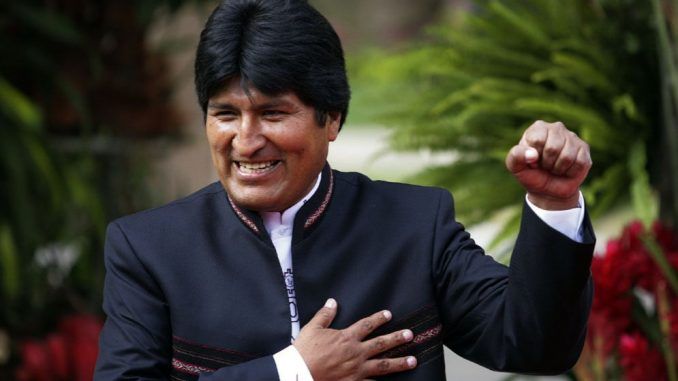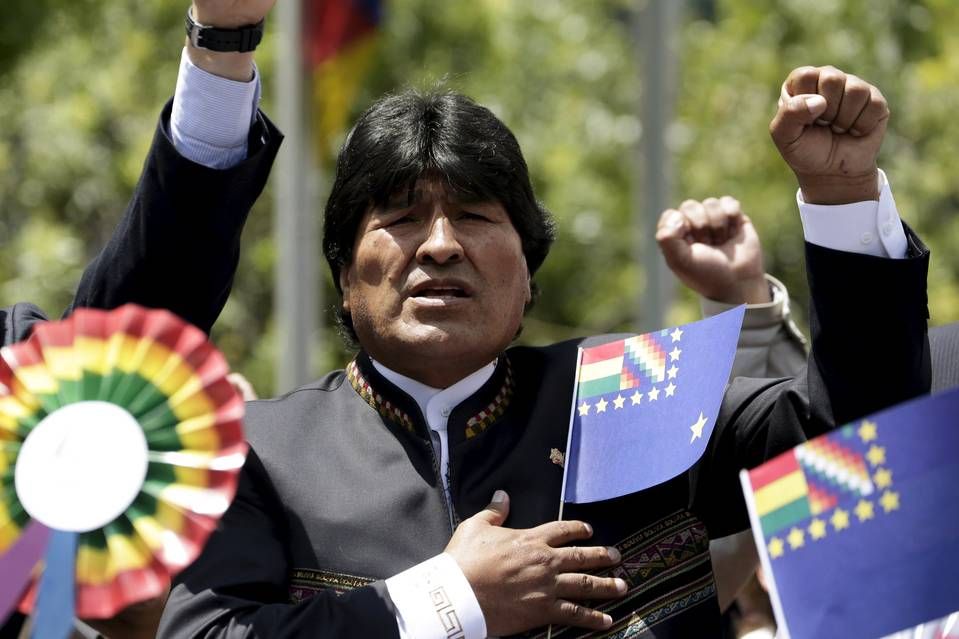
In November last year Bolivia became the latest country to kick the Rothschild banks out of their country, with President Evo Morales announcing that Bolivia will no longer respond to pressure or financial blackmail from the US government or Rothschild-controlled international banking institutions.
Just over six months later, Bolivia’s President Evo Morales has declared “total independence” from the international banking cartel and the Rothschild international money lending organizations, according to Telesur TV.
“A day like today in 1944 ended Bretton Woods Economic Conference (USA), in which the IMF and WB were established,” Morales tweeted. “These organizations dictated the economic fate of Bolivia and the world. Today we can say that we have total independence of them,” President Morales told Telesur TV.

BYPASS THE CENSORS
Sign up to get unfiltered news delivered straight to your inbox.
You can unsubscribe any time. By subscribing you agree to our Terms of Use
Morales said Bolivia’s past dependence on the Rothschild controlled agencies was so great that the International Monetary Fund had an office in Bolivian government headquarters and even participated in their meetings.
The International Monetary Fund (IMF) and US-dominated World Bank have been major players in the global economic landscape ever since their creation in 1944. These international banking organizations, which are privately controlled by the notorious Rothschild banking family, first pressure nations to deregulate their financial sector, allowing private banks to loot their economies.
Once the governments are forced to bail-out their deregulated financial sector, the IMF or World Bank sets up a loan package written in secret by central bankers and finance ministers that undermine their national sovereignty and force them to adopt policies of austerity that harm workers, families, and the environment.
Bolivia have become the first South American country to grow wise to the ruse. They have worked hard to gain financial independence and are now in the process of kicking the Rothschild controlled banks out of their country.
True Activist report: Before Evo Morales assumed the office of president, Bolivia was suffering from the effects of IMF/World Bank-imposed austerity and privatization that exploited its people and resources. It was also South America’s poorest nation. Though the Bolivian people, through strong showings of popular resistance over a period of years, were able to stop some of the worst privatization efforts – particularly the privatization of the nation’s water supply, many of the shackles imposed by these Rothschild-controlled institutions remained.
Morales, who became Bolivia’s 80th president in 2006, was the first president to come from Bolivia’s majority indigenous Aymara population and has since focused on poverty reduction and combating the influence of the United States and multinational corporations in Bolivia. Ten years later, Morales has managed to transform Bolivia into the fastest growing South American economy all while maintaining a balanced budget and slashing its once-crippling government debt.

Bolivia’s newfound economic independence has now empowered Morales to reject the very same institutions that once preyed upon his country. Last year, Morales announced that Bolivia will no longer respond to the demands or blackmail of the United States, the World Bank, or the IMF.
During a visit to Tarija in Southern Bolivia, Morales said “Before, in order to obtain credit from the IMF, we were forced to give up a part of our country, but we have liberated ourselves economically and politically and we are no longer dependent on other countries or institutions.”
Morales has done much more than ban international banking cartels. The Morales administration made enormous transformations in the Andean nation.
American Herald Tribune report: The figures speak for themselves: the nationalization of hydrocarbons, poverty reduction from 60% to less than 40%, a decrease in the rate of illiteracy from 13% to 3%, the tripling the GDP with an average growth of 5% annually, the quadrupling of the minimum wage, the increasing of state coverage on all fronts, and the development of infrastructure in communications, transportation, energy and industry.
And above all, stability, an unusual word in the troubled political history Bolivia, of which today, with the economic slowdown experienced by many countries in the region, is a real privilege.


